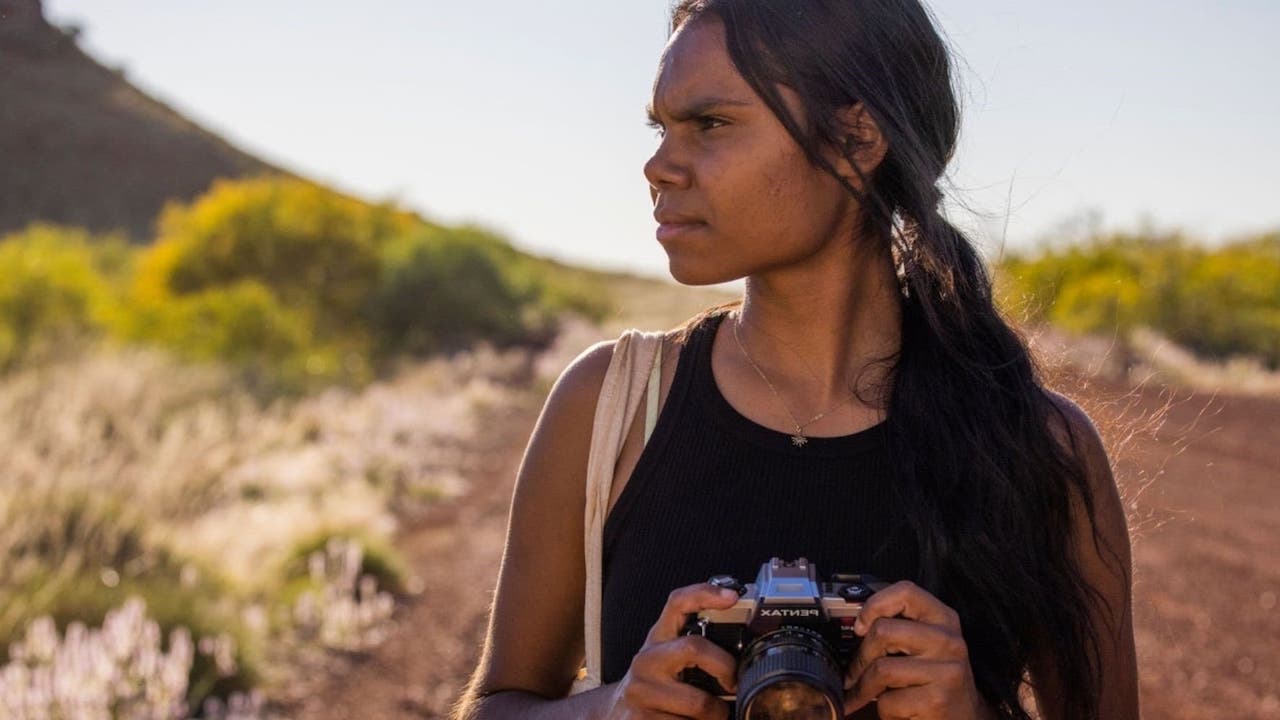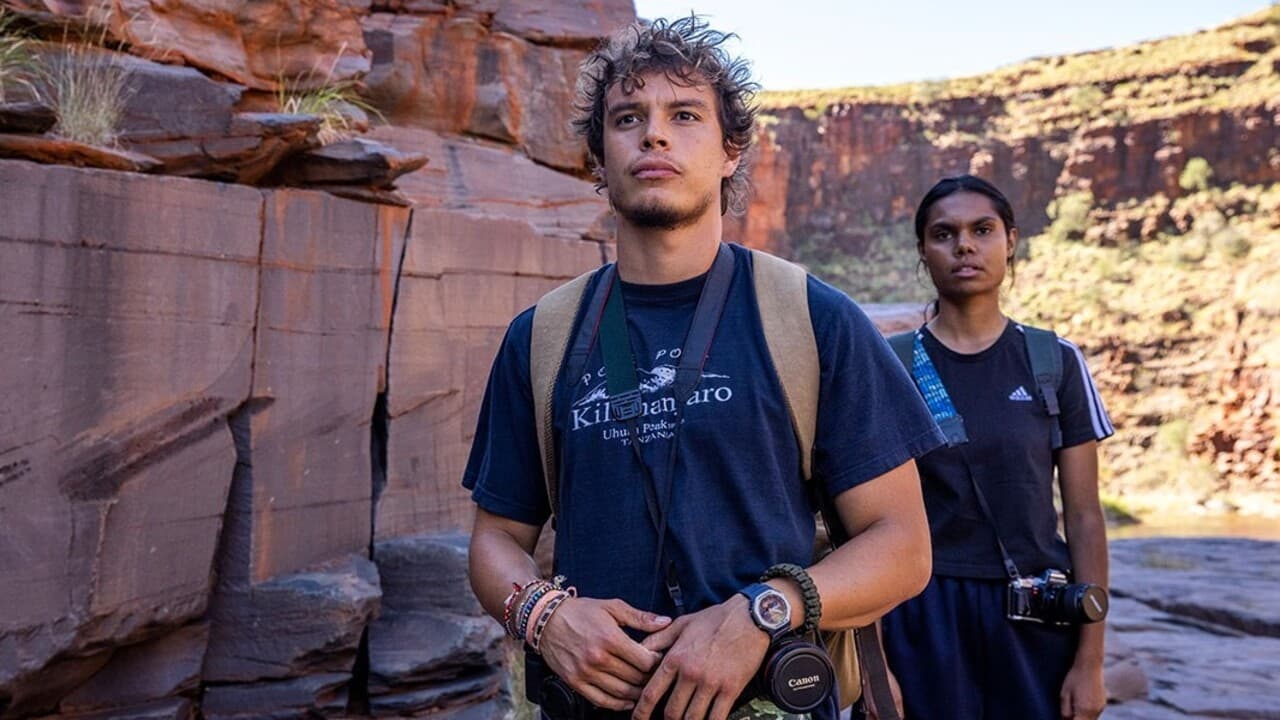Sweet As is like The Breakfast Club gone outback, with stunning cinematography

The comedy and character-building in this coming-of-age drama aren’t always solid—but Eliza Janssen reckons Sweet As is still an outback road trip worth taking.
It feels odd that this summery yet somber coming-of-age film has arrived on Australian screens in the middle of winter. Structured as a wistful road trip for characters who should be in the sunniest, most exciting stage of their lives, it’s also a visually stunning postcard from the Pilbara region. Then again, maybe a slice of Vitamin D and soul-searching couldn’t come at a better time.
Drawn from director Jub Clerc’s memories of her own youth photography trip, Sweet As is shockingly the first ever film to be made in Western Australia by an Indigenous filmmaker. Clerc uses a classic format of trapping rebellious, angsty teens in a strange environment that may shape or break their futures (The Breakfast Club: Outback Mode, let’s call it).
But the creative team and characters’ connection to country makes the journey far more impactful than your garden-variety team-building workshop. Conveyed most powerfully in wordless, sweeping landscapes, that wider, earthy understanding of what it means to belong distinguishes Sweet As from any other teen drama.
Shantae Barnes-Cowan plays her cards close to her chest as Murra, a sensitive First Nations teen deemed ‘at risk’ when her cop uncle (Mark Coles Smith) separates her from her dysfunctional mum (Ngaire Pigram) yet again. Murra is a good kid in a bleak situation: we can tell that all she needs to find herself, and some brighter future, is vision. A bus trip up the Pilbara with three other troubled youngsters, tasked with capturing the world around them on cameras, should do the trick! Right?
Not quite. Each of Murra’s fellow passengers has been driven to the edge of their own unique precipices, and on the very first day of the adventure their awkwardness boils over into underage drinking and breaking-and-entering shenanigans. Sean (Andrew Wallace) struggles with suicidal ideation; Kylie (Mikayla Levy) is a foulmouthed rebel in a toxic relationship with her controlling BF; and even the easygoing Elvis (Pedrea Jackson) hides his past trauma under a beaming grin.
The gang’s reluctant holiday, soundtracked by breezy pop songs from local artists, is always underlined by a vague sense of menace. Clerc never ignores the danger and self-destructiveness that threatens these vulnerable young people, whether it comes from inner esteem issues or unfriendly strangers in the towns they visit. The attitude here is non-judgemental, with images of goon bags floating in swimming pools and our characters glaring uncomfortably at one another. But that open-eyed, pragmatic approach to burgeoning friendship and selfhood can also hinder the film’s attempts at both comedy and climactic drama.

Murra quickly takes to photography as the tool of self-expression she’s been missing, but her enthusiasm is also tied to a blossoming crush on the trip’s gregarious leader Fernando (Carlos Sanson Jr.). We see her take voyeuristic travel snaps of him, captioning them “Luberly Thing”, and we know that no good can come of her desperation to be loved and accepted by this sexy guy who’s only trying to serve as a solid role model. The tension of this doomed infatuation, and Murra’s interpersonal drama with the other kids, comes and goes without imparting a confident sense of building momentum.
One joyous episode sees the youngsters left to their own devices, ending on a slow-motion shot of all four gleefully plucking a bush turkey for tucker. But their path to happiness—from anti-social ennui to life-altering connection—is tonally shaky. They’re too quick to announce that these are the best days of their lives, joking inorganically about one another whilst we never get much context on any other character than Murra.
It’s perhaps plausible that the sheer freedom of the trip, and the company of other fragile peers, could bring someone like nebbish Sean out of his shell, or encourage Kylie to boldly dump her abuser. But Sweet As will always go for a wounded stare or unconvincing moment of bestie bonding over a well-placed bit of dialogue, or any true lyrical depth that could get us closer to these growing characters. There’s always plenty of adventure and activity onscreen, but not a driving, clear direction of the cast’s juvenile energy.

What anchors Sweet As, then, is its remarkable visuals. It’s pivotal for a film about fresh eyes seeing the world, and photography in particular, to look damn good, and cinematographer Katie Milwright absolutely achieves that. Clerc pulls out from Murra’s early, amateurish photos to show us high-contrast tableaus of a pale moon caught between powerlines; breathtaking gorges and mountains; wider-than-wide shots where our protagonists are miniscule against the majesty in which they’ve found themselves.
Aligned cleverly to the zesty perspectives of our young heroes, the film’s aesthetic is also wisely distinct from the Gothic, empty-looking places we see in other prestige Australian dramas or period stories that see the land through bleak, theatrical lenses. Here, pink and teal colours burst with some of the sweetness from the film’s title. Vibrancy and scale are amped up, hopefully inspiring little Murras in the audience to their country as the living Instagram Filter it can magically appear to be.
For Murra, Elvis, and the group’s Indigenous bus driver Mitch (Tasma Walton) in particular, these soul-stirring environments have a strong personal effect. The film welcomes every character into special, ancestral places of belonging, and as an audience we’re helpless to fight that same feeling.
Sweet As is not technically a complex or original film. Its setting and its centring of vulnerable Aussie youths—with an especially serious perspective on Indigenous adolescence—are groundbreaking, but from the gloomy opening scenes to its redemptive conclusion, we always know Murra and her new mates will wind up where they’re meant to be. For a fresh, uniquely WA spin on that trusty narrative arc, focused on a sunny, identity-defining holiday, Sweet As impresses.


















